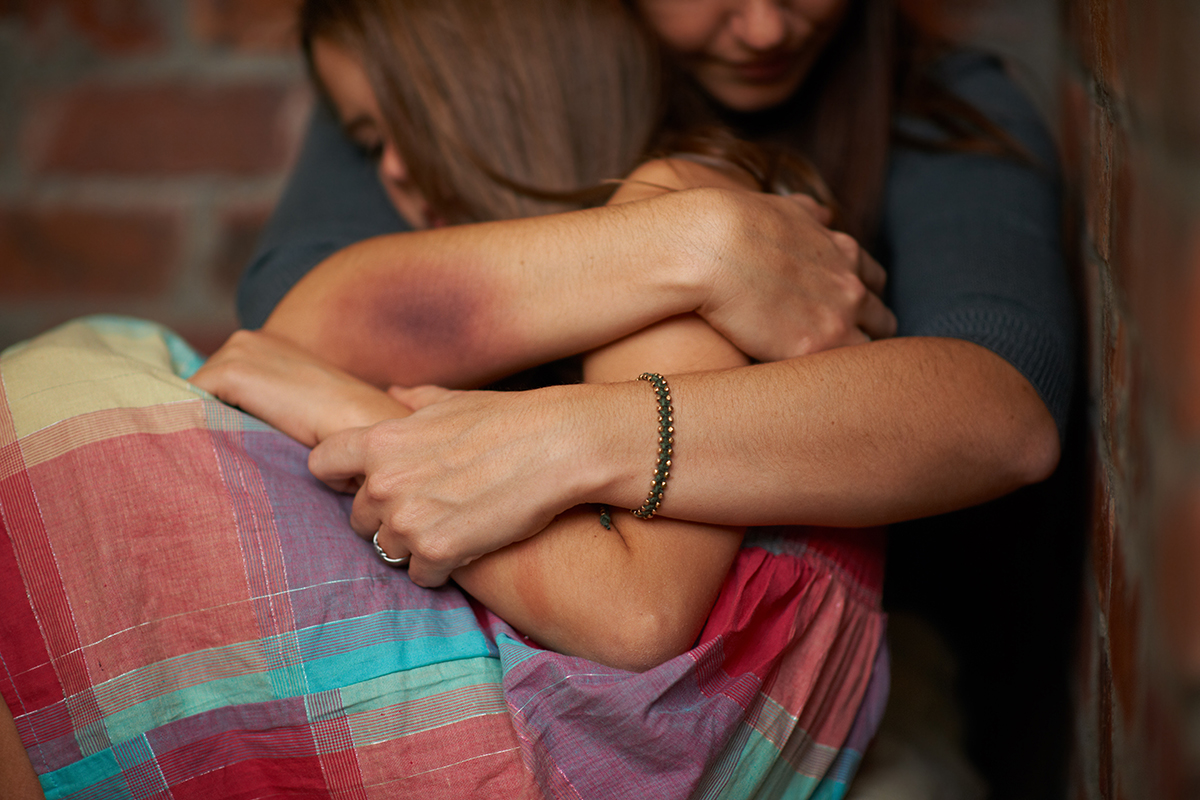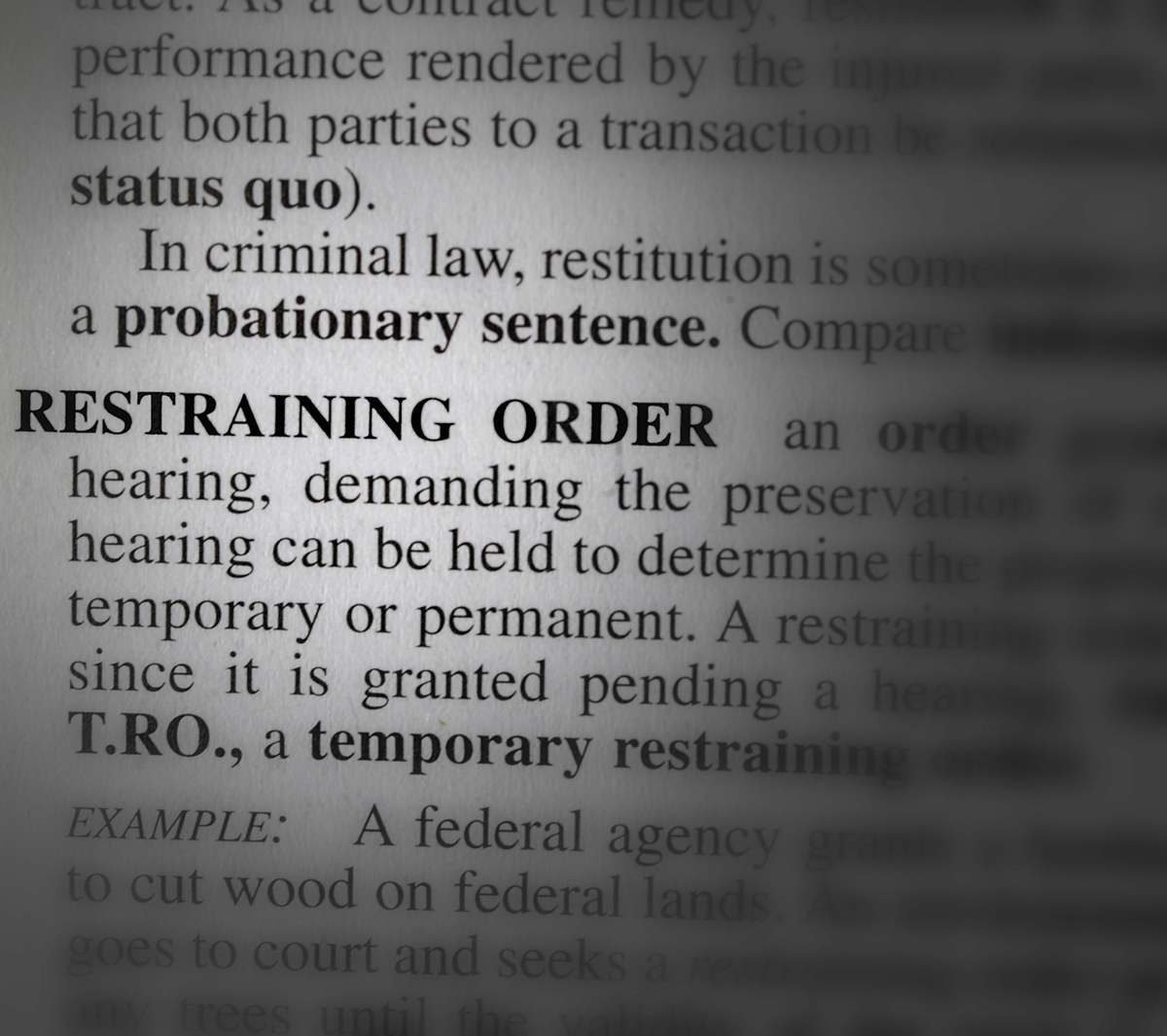Top 5 Reasons Husbands Initiate Divorce
USA Teenage Divorce Statistics
5 Signs of Financial Abuse in Marriage
Creating the Perfect Parenting Plan
Are People Happier After Divorce?

Domestic violence happens in every town, city, and state. A restraining order is a type of special court order that can be requested by those in Florida who have been harmed by someone they live with or have had a relationship with. This order serves to protect the victim from the aggressor.
When someone is hurt by a relative or someone they know, it is referred to as domestic violence.
Domestic violence in Florida can include many acts, including:

Serena’s Law is a Florida state law. It was created to address child abuse and protect vulnerable children from harm by imposing tougher penalties on those responsible for serious abuse or neglect.
Serena’s Law can impact how restraining orders are applied by prioritizing the safety of children and enforcing stronger restrictions on abusers, such as limiting or prohibiting their contact with the child and ensuring their well-being during domestic violence cases.
A restraining order obtained in Florida offers a defense against domestic violence. Anybody who is harmed by one of the actions listed above is entitled to legal assistance. Through a court order, the law provides protection from further harm and ensures prompt legal protection if terms are violated. The purpose of the restraining order is to protect individuals from risky circumstances.
For victims of domestic violence, the court can issue an order that matches the specific needs of their situation. Here are some of the common actions courts take to help:

Restraining orders are of different types depending upon the situation. Each type of injunction is designed to protect people from harm in different circumstances. [2]
This restraining order is issued if you and the other person share at least one child. You could be either married or unmarried, and it does not matter if you have lived together before or not. The important part is that there is a child or children in common.
If there are no children in common, it may be that the person is connected to you by blood or marriage. This type of restraining order also includes extended family members who live or have lived together in the same home.
This restraining order is for situations where there have been at least two instances of domestic violence. Both instances must have happened within a timeframe of six months.
This type of restraining order is used if you were a victim of sexual violence. The requirement to get this restriction order is a police report or an active investigation of your case.
If the person you are filing the petition against is not your spouse or ex-spouse, then you must prove that you have had a significant romantic relationship with the person within the past six months.
A restraining order against stalking violence is issued in circumstances where someone repeatedly follows or harasses another person without any reason. It also includes cyberstalking, where the internet is used to cause emotional harm or stress.

When the court issues a temporary restraining order, it gives a chance to the accused to present his side of the story before the order comes into effect. This hearing takes place in two weeks to decide if the temporary order should stay in place. The accused will present evidence to try to get the order canceled in this hearing.
During this time, the person accused is not allowed to contact the victim in any manner. This includes in-person meetings, phone calls, text messages, or having someone else pass messages between them. They must maintain a certain distance such that the accused cannot go to the victim’s workplace, school, or any other place they might be.
If the restraining order comes into effect then the accused is bound to follow it. Not following the restraining order can result in arrest and jail time, fines, and criminal charges.
You can obtain a restraining order by visiting the Florida courts website. You should follow the following steps:
If you are facing domestic violence, then you must provide evidence to support your claim. This information may include police reports, medical reports, and any witness statements.
You need to file a petition with the court for the restraining order. To file the petition, you need to recount many instances of domestic violence in detail. You must provide as many facts as possible, such as the date, time, and the nature of the abuse.
The Family Court Judge schedules a hearing where you explain the conditions under which you filed a petition for the restraining order. This hearing typically happens on the same day you file the petition. This can be an emotionally draining process as you have to relive domestic abuse.
If the judge grants the Temporary Restraining Order (TRO), it has to be served to the other party. Your attorney can assist you in the next steps and serve the TRO. You can also have the police serve the order.
After about two weeks time a final hearing is scheduled where the respondent also has a chance to present their arguments. The judge then decides if the temporary restraining order should be extended.

Restraining orders are of two types; permanent and temporary.
Under the Florida Law, a permanent restraining order can be for a year, two years or even longer. It varies from case to case. Sometimes the permanent restriction order does not have an end date which makes it last forever. The petitioner as well as the respondent can ask the court to change the restraining order in which case the judge reviews the requests and decides what to do about it.
A temporary restraining order stays in place for 15 days after which a final hearing is scheduled. Both parties present their case in the final hearing and the judge then decides what the permanent restraining order would be.
Experiencing domestic abuse can be an emotionally draining experience. Things can get better. Contact Sacks & Sacks today if you are suffering from domestic violence and need representation and advocacy.
FAQs:
Q. What is Serena’s Law?
Serena’s Law is a Florida law designed to protect children from abuse by imposing stricter penalties on abusers.
Q. What are the consequences for violating a restraining order in Florida?
Penalties can include fines, mandatory community service, probation, and even jail time.
Q. How long does a restraining order last in Florida?
In Florida, the duration of a restraining order can vary based on the type of order issued. Generally, a temporary injunction is granted for a limited period, often until the court holds a hearing, which usually takes place within 15 days. If a final restraining order is issued after the hearing, it can last for a specified period, typically ranging from one year to indefinite, depending on the circumstances of the case and the court’s discretion.
Sources:
[1] 15th Judicial Circuit of Florida. (n.d.). https://www.15thcircuit.com/program-page/domestic-violence/faqs
[2] Domestic Violence & Restraining Orders. Okaloosa Clerk of the Circuit Court & County Comptroller. (n.d.). https://www.okaloosaclerk.com/domestic-violence-restraining-orders/
Sacks & Sacks Law — 2025 All Right Reserved